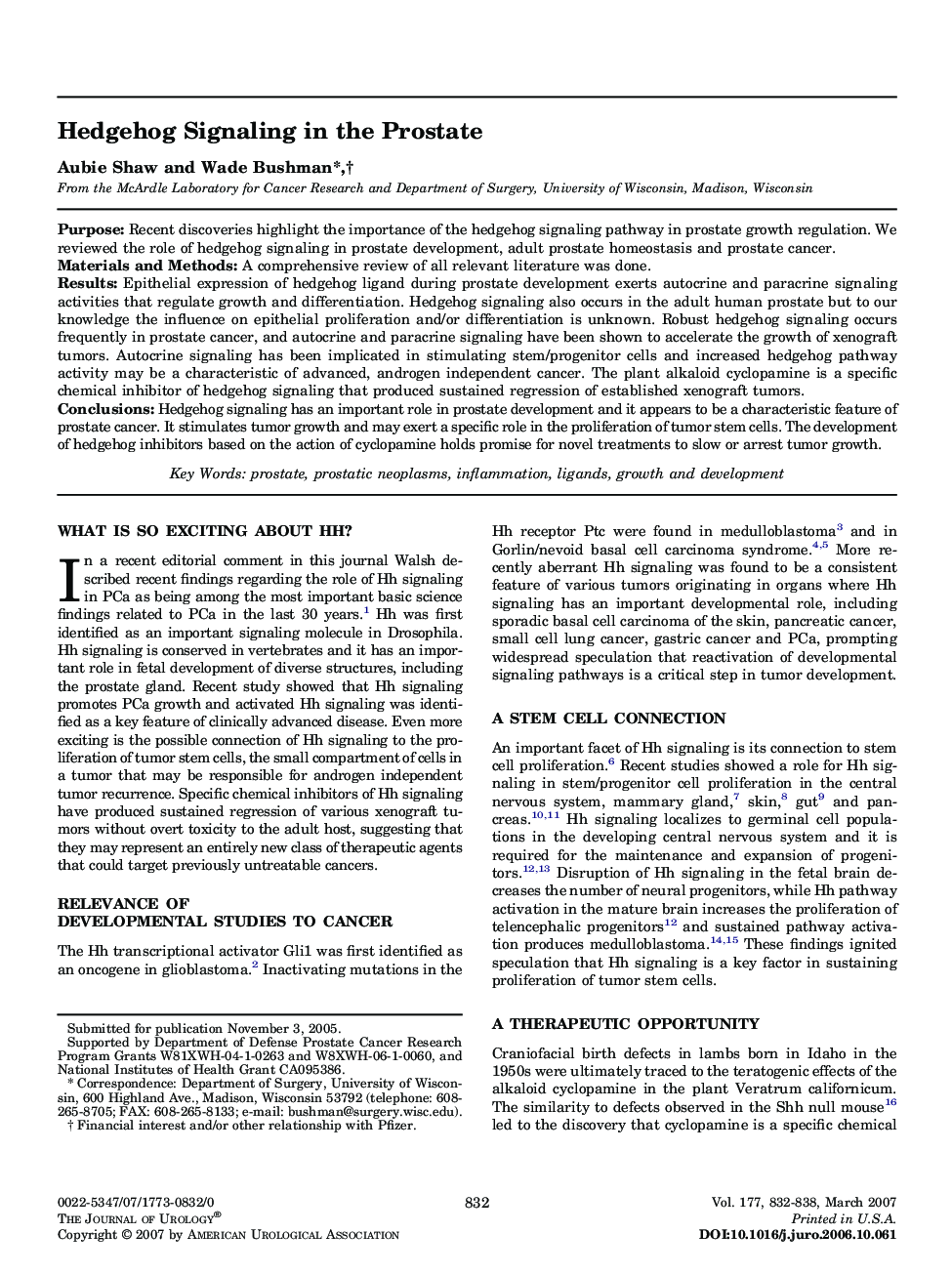| Article ID | Journal | Published Year | Pages | File Type |
|---|---|---|---|---|
| 3878903 | The Journal of Urology | 2007 | 7 Pages |
PurposeRecent discoveries highlight the importance of the hedgehog signaling pathway in prostate growth regulation. We reviewed the role of hedgehog signaling in prostate development, adult prostate homeostasis and prostate cancer.Materials and MethodsA comprehensive review of all relevant literature was done.ResultsEpithelial expression of hedgehog ligand during prostate development exerts autocrine and paracrine signaling activities that regulate growth and differentiation. Hedgehog signaling also occurs in the adult human prostate but to our knowledge the influence on epithelial proliferation and/or differentiation is unknown. Robust hedgehog signaling occurs frequently in prostate cancer, and autocrine and paracrine signaling have been shown to accelerate the growth of xenograft tumors. Autocrine signaling has been implicated in stimulating stem/progenitor cells and increased hedgehog pathway activity may be a characteristic of advanced, androgen independent cancer. The plant alkaloid cyclopamine is a specific chemical inhibitor of hedgehog signaling that produced sustained regression of established xenograft tumors.ConclusionsHedgehog signaling has an important role in prostate development and it appears to be a characteristic feature of prostate cancer. It stimulates tumor growth and may exert a specific role in the proliferation of tumor stem cells. The development of hedgehog inhibitors based on the action of cyclopamine holds promise for novel treatments to slow or arrest tumor growth.
